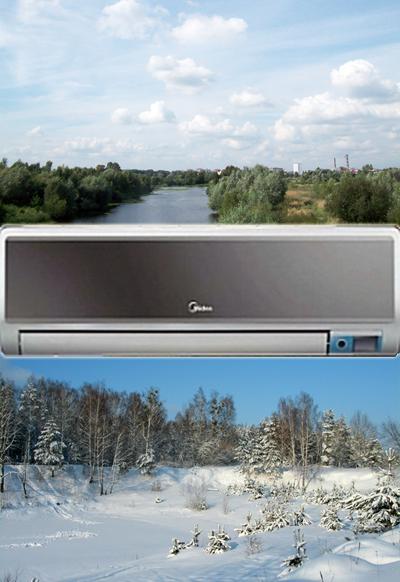Short summary of article about: how to choose an air conditioner – types, power, features.
Choosing an air conditioner.
 Buying an air conditioner is certainly a serious matter, and one should approach the choice of this indispensable (especially in the summer) element of modern life accordingly. How can you choose the right model so you won't later regret an ill-considered decision?
First of all, determine the budget you are willing to allocate and your personal preferences regarding the functions you want the air conditioner to provide.
You need to weigh everything to achieve the optimal price-quality ratio. It's best to do this as a list or table presenting the most important purchase parameters — then the advantages of different models will be more visible.
Pay special attention to whether the vendor provides installation services for the purchased equipment. This will be the first criterion by which unreliable companies are eliminated.
Buying an air conditioner is certainly a serious matter, and one should approach the choice of this indispensable (especially in the summer) element of modern life accordingly. How can you choose the right model so you won't later regret an ill-considered decision?
First of all, determine the budget you are willing to allocate and your personal preferences regarding the functions you want the air conditioner to provide.
You need to weigh everything to achieve the optimal price-quality ratio. It's best to do this as a list or table presenting the most important purchase parameters — then the advantages of different models will be more visible.
Pay special attention to whether the vendor provides installation services for the purchased equipment. This will be the first criterion by which unreliable companies are eliminated.
Do not turn to the first company you come across, as you may later regret it when confronted with delivery and installation. The fact is that buying an air conditioner is half the job compared to professional and competent installation. Even high-quality equipment, if installed incorrectly, will not operate as long and as reliably as you would like.
Check how long the company you have chosen has been operating in the climate equipment market. If the period of operation is less than a year, it is better not to deal with such firms — there is a certain risk of being deceived, since fly-by-night companies often appear during the hottest days and then disappear without a trace in autumn.
It won't hurt to study the available information about the air conditioner you're interested in and prepare questions in advance. Please don't hesitate to ask them to the specialists, because a company that cares about its reputation and respects its clients will certainly answer all your questions and provide maximum information about the models you are interested in and about the product range as a whole. Such a company, as a rule, has all the necessary certificates and licenses for the services provided.
It is best to start communication with the company manager by choosing the type of air conditioner you need. According to capacity, air conditioners can be divided into two types:
• Residential (domestic) air conditioners (most often used for small offices and living spaces)
• Industrial and semi-industrial air conditioners (have higher capacity and are intended to service areas over 100 sq.m.)
You need to determine the required capacity for your room, the necessary functions and the presence of protection systems to prevent improper use. Knowing the operating principles of an air conditioner will help you understand the basic requirements for operation and avoid unnecessary problems later on.
An important point will be determining the future location of the air conditioner, since different types have different possibilities for this. For example, a window unit, although it has the lowest price, is quite demanding in terms of installation location — it requires either a window opening or a suitable wall in which a hole will need to be made. Wall-mounted units occupy a certain portion of wall space, while cassette units are preferable in rooms with a suspended ceiling.
Clarify the level of air purification provided by the chosen model, which may be particularly relevant for you. You may not be able to do without air ionization or removal of harmful organisms and be willing to pay extra for such useful features.
During discussions with the manager, be prepared that they may try to steer you toward a model that is profitable for them to sell. Your task is different — to buy what you actually need, so it won't hurt to ask why a particular model is being recommended and what its advantages and disadvantages are. After all, buying an air conditioner is a purchase for many years.
The above generally applies to the purchase of semi-industrial and residential air conditioners, which cannot be said of industrial units, the purchase of which requires careful measurements of the room and thorough calculations and preparatory work based on those parameters.
So how to select an industrial air conditioner?
It is best to start with a preliminary consultation with a company specialist who will assess all the characteristics of the room that may affect the choice of air conditioner: the presence and area of windows, the presence and quantity of heat-producing equipment, and even the number of people who are regularly in the room.
On the air conditioner market there are usually 10–15 manufacturers of such equipment. But the leaders in industrial air conditioning can safely be named: • Daikin air conditioners
• Mitsubishi air conditioners
• LG air conditioners
• Panasonic air conditioners
After all, they have proven themselves well and are popular with customers.